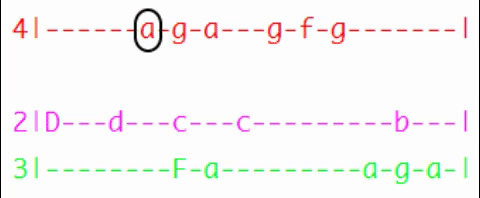Are you looking to play Silver Spoon by BTS on the piano, using easy letter notes, but aren’t sure where to start, you’ve come to the right place! This timeless track is a favorite for many, and with our easy piano letter notes, you’ll be playing it in no time. Whether you’re a beginner or just looking for a quick way to learn, our simple format breaks down the song so it’s fun and effortless to master. Ready to get started? Keep reading, and you’ll find the letter notes waiting for you below!
Congratulations! You’ve now reached the end of our guide to playing Silver Spoon by BTS on the piano. With the easy piano letter notes provided, you have everything you need to bring this beloved song to life, whether you’re practicing alone or performing for friends and family. Remember, learning piano is all about patience, practice, and passion. Take your time mastering each part of the song, and don’t worry if it doesn’t sound perfect at first—every great musician started somewhere!
As you become more comfortable, try experimenting with your own style and dynamics to make the song truly your own. And don’t forget, music is meant to be enjoyed, so celebrate your progress and have fun along the way.
If you enjoyed this tutorial, be sure to explore the rest of our collection of easy piano letter notes for more of your favorite songs. There’s always another melody waiting to be learned! Keep practicing, keep playing, and most importantly, keep sharing your love of music with the world. Happy playing!
 Each group of letter notes is played from left to right, and vertical letters on the same column are played together.
Each group of letter notes is played from left to right, and vertical letters on the same column are played together.
The numbers in front of each line are the octave, each octave has an unique color so you can easily follow them.
Lowercase (a b c d e f g) letters are natural notes (white keys, a.k.a A B C D E F G ).
Uppercase (A C D F G) letters are the sharp notes (black keys a.k.a. A# C# D# F# G#), look at the image below to see where each letter note is on the piano keyboard.
The lines / dashes (-) between letters indicates timing to play the notes. Just listen to the audio file at the top of the post to figure out the time lenght of the dashes (usually 5-6 dashes is about 1 second)
RH / LH means Right Hand / Left Hand and it's mostly for people who play the piano, it tells them with what hand to play the lines. Also, if you want to play a easy version of the song, playing only the RH lines does exactly that, because on most songs RH notes are for melody and LH notes are for bass.

5|----------------a---------|
5|a-g-f-e-c-e---c---------f-|
4|------------b---a---------|
5|e---e---------------------|
5|--f---a-g-f-e-c-e---c-----|
4|------------------b---a---|
5|------e---e---------------|
5|----f---f---a-g-f-e-c-e---|
4|------------------------b-|
5|--a---------e---e-----f-e-|
5|c---------f---f---a-e-a-d-|
4|--a-----------------------|
5|----f-e-----f-e-----------|
5|a-e-a-d-a-e-a-d---e-e-----|
As you become more comfortable, try experimenting with your own style and dynamics to make the song truly your own. And don’t forget, music is meant to be enjoyed, so celebrate your progress and have fun along the way.
If you enjoyed this tutorial, be sure to explore the rest of our collection of easy piano letter notes for more of your favorite songs. There’s always another melody waiting to be learned! Keep practicing, keep playing, and most importantly, keep sharing your love of music with the world. Happy playing!
Quick guide on how to read the letter notes

The numbers in front of each line are the octave, each octave has an unique color so you can easily follow them.
Lowercase (a b c d e f g) letters are natural notes (white keys, a.k.a A B C D E F G ).
Uppercase (A C D F G) letters are the sharp notes (black keys a.k.a. A# C# D# F# G#), look at the image below to see where each letter note is on the piano keyboard.
The lines / dashes (-) between letters indicates timing to play the notes. Just listen to the audio file at the top of the post to figure out the time lenght of the dashes (usually 5-6 dashes is about 1 second)
RH / LH means Right Hand / Left Hand and it's mostly for people who play the piano, it tells them with what hand to play the lines. Also, if you want to play a easy version of the song, playing only the RH lines does exactly that, because on most songs RH notes are for melody and LH notes are for bass.

